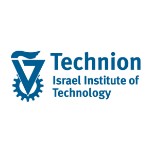COVID-19 Rapid Response Innovation Project
Rapid development of Anti-SARS-CoV-2 polymers
The challenge
SARS-CoV-2 has shown a significant survival rate on different surfaces, including cardboard, stainless steel and plastic – in some cases lasting on surfaces for up to 17 days, according to the CDC. COVID-19 is not only transmitted through human-human transfer but also through surface contact. The leading measure currently used for disinfecting surfaces is spraying a solution of sodium hypochlorite, or household bleach. Unfortunately, bleach breaks down rapidly under sun/UV light, and its stability is very poor, so it evaporates within a few minutes. Even frequent disinfection with bleach cannot guarantee a surface is free of the virus that causes COVID-19.
The solution
This project will develop disinfectant polymer materials that can make surfaces with strong antiviral properties. Unlike small molecules, polymers are highly stable macromolecules that do not break down, and they can be designed to have long-lasting disinfecting qualities. Compared to other inorganic bleaches, antiviral polymers are durable, not corrosive, and do not decompose in water to form toxic compounds. The project team plans rapid development of novel, effective, superior and stable disinfecting antiviral polymers that prevent the spread of viruses. The disinfectant materials will be prepared in a straightforward simple reaction, using cheap, commercially available materials so that the polymers can be mass-produced.
Expected impact
The antiviral polymers that this project will develop can be used in hospitals, schools, transportation systems, homes – on any surface where there is a risk of traces of the SARS-CoV-2 virus. Along with protective equipment such as masks, these materials can become an essential part of the means for defending against the spread of COVID-19, providing a form of protection during the current pandemic and preparation for the next one.
Member

CLC/InnoStars: Belgium-Netherlands
Partner classification: Education, Research
The Technion, Israel Institute of Technology, is a science and technology research university dedicated to the creation of knowledge and the development of human capital and leadership for the advancement of all humanity. The Technion is at the forefront of today's developments in the merger of engineering, life sciences, molecular analysis, and other leading topics in modern research. This is combined with the latest developments in fields of molecular biology in general, and the development of new drugs and medical technologies, backed by the rapid expansion in nanotechnology and the exponential increase in computing power. This position allows it to realize opportunities in accelerating the development of new imaging and analytical tools, new compounds, bridging between biological systems and technology, developing new biotechnological products, inventing diagnostic and therapeutic tools, and leading in the advance toward a better understanding of life processes in general. The Technion applies creative thought and deep scientific knowledge towards advancing Israel's life science industry for the good of the planet and mankind.
Key Activities in Research and Developement
Other research, Biomedical engineering, Life Sciences
Key Activities in Corporate Innovation
Med Tech, ICT
Key Activities in Business Creation
Incubation, Technology Transfer, Business coaching
Key Activities in Education
Entrepreneurship training, Technical faculties, Healthcare professional education/training
